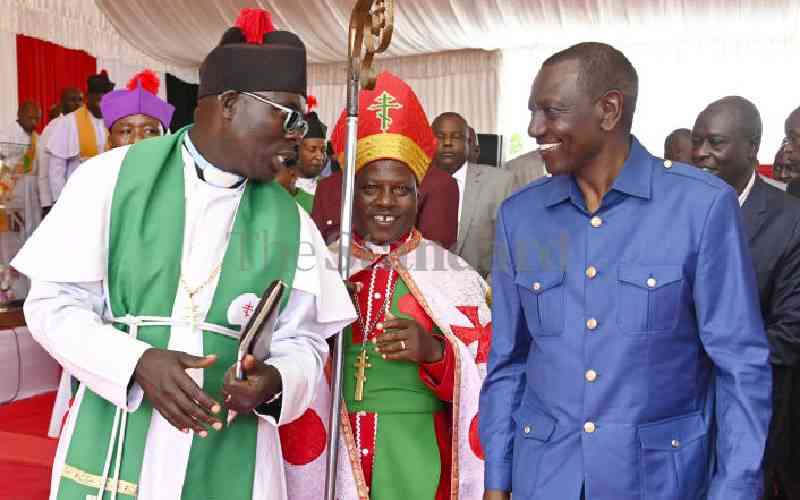
President William Ruto found himself in faith-related trouble after several religious groups castigated him for below expectation performance and purported ethical failures.
Given that he came into office in 2022 as the 'anointed one' parading evangelical credentials, allegations of ethical shortcomings stung deep. Still, there were denominations that refused to judge Dr Ruto. The most pronounced of these was the African Independent Pentecostal Church of Africa (AIPCA, or simply Indi), whose political interests appear to converge with Ruto's.